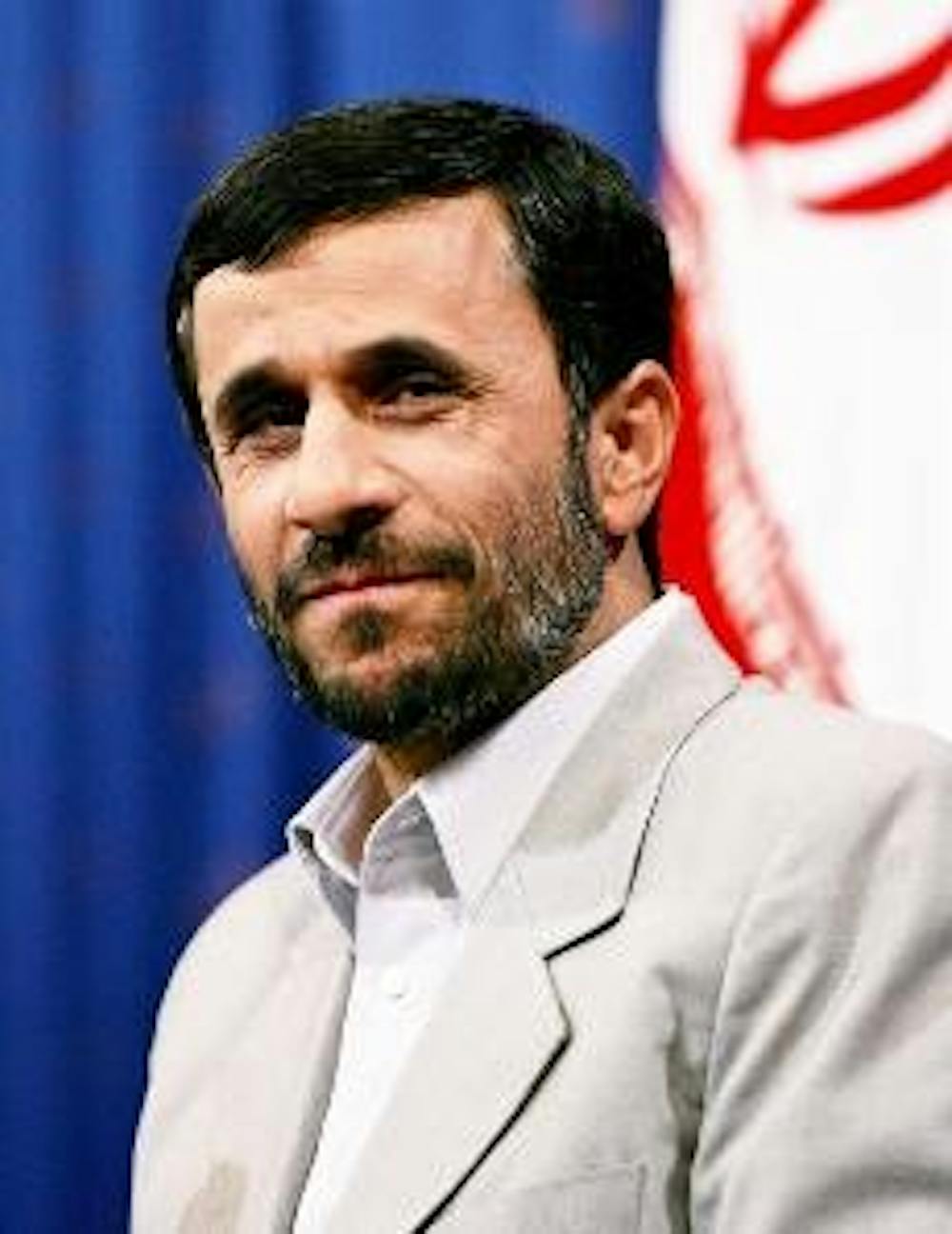Monday marked one of the most public displays of First Amendment rights in this generation. Columbia University hosted Mahmoud Ahmadinejad, the president of the Iran, in an open forum with an audience of 700 people, 80 percent of whom were students, according to news reports from CNN and NBC.
In just over one hour, Ahmadinejad addressed his country's policies for personal freedom, his country's nuclear research program and his concerns about the situation between Palestine and Israel, according to transcripts of the speech.
Columbia President Lee C. Bollinger began the afternoon by defending his decision to host Ahmadinejad, saying, "The scope of free speech in academic freedom should itself always be open to further debate." Bollinger later attacked Ahmadinejad, saying he exhibited "all the signs of a petty and cruel dictator."
"I was offended," said Mahsa, an Iranian student at the Washington College of Law who did not want her last name to be printed for safety reasons. "I mean, everyone has a right to criticize as they wish, it is just the manner in which you do it. There were a lot of unnecessary words, like calling [Ahmadinejad] 'uneducated.'"
Emilia Giordano, a sophomore in the School of Communication, said Bollinger's actions were understandable.
"He knows that there are serious consequences for having Ahmadinejad there," she said. "He's probably just covering his own behind."
Ahmadinejad's speech, which may as well be called a duel of words between the president and Bollinger, touched briefly, on Ahmadinejad's part begrudgingly, on the subject of Israel and Palestine, according to transcripts of the speech.
"We love all people," Ahmadinejad said. "We are friends of the Jews. There are many Jews living peacefully in Iran."
Ahmadinejad appeared to be stepping back from his previous anti-Israel comments. Holding up the white flag, undoubtedly more in the name of diplomacy than a personal change of heart, Ahmadinejad attempted to neutralize his comments as a simple attempt to defend the Palestinian people.
On the subject of nuclear weapons, which he spoke of in more detail at the United Nations on Wednesday, Ahmadinejad defended his country's right to nuclear research. He said the Iranian nuclear program was solely for the purpose of civilian energy and that Iran had gone through the proper procedures to obtain permission for nuclear research but had still been denied the right.
Ahmadinejad was clearly offended by this, and it is hard to not see his point: Russia, India and Pakistan, Iran's neighbors, all have taken part in nuclear research for years without international outcry.
"This issue is all about pride and prestige, but I really don't think that Iran has nuclear weapons," Mahsa said. "We don't want war. The sanctions are already hurting the people. It is not the government officials who are taking pay cuts and having trouble making ends meet, it is the people."
Krista Jorstad, a freshman in the School of International Service, also said Iran probably doesn't have nuclear weapons.
"They obviously have the materials, but every reliable source that I have seen has led me to believe that no, they do not have nuclear weapons," Jorstad said. "Enough sensationalism."
While Ahmadinejad's afternoon could have been three steps toward peaceful relations between the United States and Iran, many are seeing it as five steps backwards. Columbia is coming under steady fire by many critics for allowing the Iranian president free reign to speak his mind. Hundreds of Columbia students protested the school's decision.
AU students were split on whether or not they would support a speech by Ahmadinejad at AU.
"Absolutely," said Giordano. "Without a doubt."
Jorstad said Ahmadinejad's speech was well-articulated and included well-backed assertions.
"You may not agree with what he said, but you should at least listen," she said.
Mahsa, the Iranian student, said she did not want Ahmadinejad to speak anywhere.
"He had the forum to tell the American people about Iran's grievances, and he failed," she said. "We have a saying in Iran ... it means always wear your sword, but not where other people can see it. There will not be peace until there is equilibrium, and there will not be equilibrium between the two nations while there are events like this"





